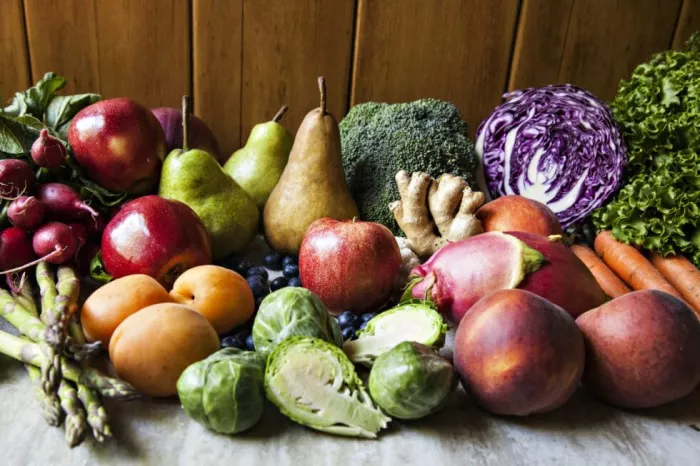Protein is a fundamental nutrient for the human body, serving as the building blocks for our muscles, tissues, and a myriad of essential biological processes. While we often associate protein with animal-based sources like meat, poultry, and dairy, there’s a growing interest in plant-based protein options. One such source that has gained popularity in recent years is the avocado. This creamy, green fruit is celebrated for its rich, healthy fats and various vitamins and minerals. But how much protein does an avocado really have, and can it be a meaningful part of your protein intake? In this comprehensive article, we will delve into the protein content of avocados, exploring their nutritional benefits, their place in a protein-rich diet, and the various ways you can incorporate them into your meals. Let’s unveil the protein power of avocados!
The Protein Puzzle: Unpacking the Avocado’s Protein Content
Avocado, scientifically known as Persea americana, is a unique fruit, commonly referred to as a “superfood” for its impressive nutritional profile. But when it comes to protein, avocados aren’t typically the first food that comes to mind. However, that doesn’t mean they should be overlooked in your quest for protein-rich foods.
The Protein Content of Avocado: A Detailed Analysis
To understand how much protein an avocado contains, it’s essential to consider its nutritional composition. On average, a medium-sized avocado weighing around 200 grams contains about 2 grams of protein. This might not seem like much, but when combined with other nutrient-packed aspects of avocados, it can make a meaningful contribution to your daily protein intake.
Protein in Avocado: A Comparative Overview
When comparing the protein content of avocados to other common protein sources, avocados do fall on the lower end of the spectrum. For instance, an equal serving of chicken breast provides about 30 grams of protein, while a cup of cooked quinoa delivers approximately 8 grams. Nonetheless, avocados offer a unique advantage in that they provide protein along with a range of other vital nutrients that contribute to overall health and well-being.
The Benefits of Avocado Protein
Now that we’ve established the protein content of avocados, it’s crucial to understand the benefits that come with including them in your diet. Protein is not just about the quantity but also the quality and the context in which it is consumed. Avocado protein has several advantages:
Complete Protein Source: While avocados might not be considered a high-protein food, they are a plant-based source of complete protein. This means they contain all the essential amino acids required by the human body.
Healthy Fats: In addition to protein, avocados are renowned for their high content of healthy monounsaturated fats, which have numerous health benefits, including heart health and weight management.
Fiber: Avocados are also rich in dietary fiber, which aids in digestion and helps regulate blood sugar levels. The combination of protein and fiber can leave you feeling fuller for longer.
Vitamins and Minerals: Avocados are a great source of various vitamins and minerals, including potassium, vitamin K, vitamin E, and folate, which support overall health.
Antioxidants: Avocados are packed with antioxidants that combat oxidative stress and inflammation in the body, reducing the risk of chronic diseases.
Versatility: Avocado can be incorporated into a wide range of dishes, from salads and sandwiches to smoothies and spreads, making it a versatile and accessible source of plant-based protein.
Protein Power: Avocado’s Role in a Balanced Diet
Now that we’ve explored the protein content of avocados and their associated benefits, let’s consider how they fit into a balanced diet. For those looking to increase their protein intake, avocados can certainly play a role, albeit as part of a well-rounded nutritional plan.
Avocado as a Protein Source in Vegetarian and Vegan Diets
Avocados are especially valuable for individuals following vegetarian or vegan diets. These diets often require a more strategic approach to protein intake, as many traditional sources like meat, fish, and dairy are excluded. Avocado can be a substantial contributor to protein in such diets, providing essential amino acids and healthy fats.
Combining Avocado with Other Protein Sources
One of the most effective ways to maximize the protein content of your meals is by combining avocado with other protein-rich foods. For instance, you can create a protein-packed salad by adding grilled chicken, tofu, or legumes to avocado slices. This not only increases the overall protein content of your meal but also introduces variety and flavor.
Avocado and Weight Management
For those focusing on weight management and protein intake, avocados can be a useful tool. The combination of protein and healthy fats in avocados helps keep you feeling satiated, reducing the likelihood of overeating. In this way, avocados can be a valuable addition to a balanced diet aimed at weight control.
Protein and Avocado: A Winning Team for Athletes
Athletes and individuals engaged in regular physical activity require adequate protein to support muscle growth and recovery. Avocado can be part of a protein-rich diet for athletes, particularly when incorporated into post-workout meals or snacks. Pairing avocado with lean protein sources like chicken or fish can help provide the necessary nutrients for muscle repair and overall performance.
Special Considerations: Avocado Allergies and Health Implications
While avocados are celebrated for their nutritional benefits, it’s essential to note that some individuals may have allergies or intolerances to this fruit. Avocado allergies are not as common as those associated with nuts or shellfish, but they do exist. Symptoms can range from mild oral itching to more severe reactions, including anaphylaxis. If you suspect an avocado allergy, it’s crucial to seek medical advice and avoid avocado consumption.
Additionally, for individuals with certain medical conditions, such as kidney disease, the high potassium content in avocados may require dietary restrictions. It’s important to consult with a healthcare professional or a registered dietitian before making significant dietary changes, especially if you have underlying health issues.
Delicious and Nutrient-Rich: Creative Ways to Include Avocado in Your Diet
Now that we’ve explored the protein content of avocados and their place in various dietary plans, let’s get creative in the kitchen and discover some delicious ways to enjoy avocados. From breakfast to dinner, avocados can be a versatile addition to your meals.
1. Avocado Toast: A Breakfast Classic
Start your day with a classic – avocado toast. Mash a ripe avocado and spread it on whole-grain toast. Add a sprinkle of salt, pepper, and your favorite toppings, such as sliced tomatoes, poached eggs, or a drizzle of olive oil. This simple yet nutritious breakfast provides a protein boost to kick-start your morning.
2. Avocado Smoothies: Creamy and Nutrient-Packed
For a refreshing and protein-rich smoothie, blend avocado with your choice of milk (dairy or plant-based), a source of protein powder (such as whey or pea protein), and a handful of fruits like berries or banana. Avocado lends a creamy texture and enhances the overall nutritional profile of your smoothie.
3. Avocado Salad: A Protein-Packed Lunch
Combine diced avocado with various fresh vegetables and a protein source of your choice, such as grilled chicken, tofu, or chickpeas. Top it with a flavorful dressing, and you’ve got yourself a protein-packed, nutrient-rich salad.
4. Guacamole: The Ultimate Party Dip
Prepare a classic guacamole by mashing avocados and mixing them with diced onions, tomatoes, cilantro, and a squeeze of lime juice. This versatile dip pairs well with tortilla chips or as a topping for tacos, fajitas, and more.
5. Avocado Sushi: A Healthy Twist
Love sushi? Consider adding avocado to your sushi rolls for a creamy and nutritious touch. Combine it with your favorite protein sources, such as salmon, tuna, or tofu, for a protein-packed sushi experience.
6. Avocado Stuffed with Tuna Salad
For a satisfying and protein-rich snack or light meal, halve an avocado and remove the pit. Fill the hollow with a homemade tuna salad, combining canned tuna with diced celery, onions, mayonnaise, and seasonings.
7. Avocado Chocolate Mousse: A Sweet Treat
Indulge your sweet tooth while still benefiting from the goodness of avocados. Blend avocado with cocoa powder, a sweetener of your choice (such as honey or maple syrup), and a touch of vanilla extract. This guilt-free chocolate mousse is rich in protein and healthy fats.
Conclusion
In conclusion, avocados might not be a protein powerhouse when compared to conventional sources like meat or dairy. However, they offer a unique combination of complete protein, healthy fats, fiber, vitamins, and minerals. Avocados can play a valuable role in various dietary plans, especially for vegetarians, vegans, and those looking to increase their protein intake while benefiting from the nutritional richness this fruit provides.
As you explore the protein content of avocados and their many culinary possibilities, remember that a balanced diet is all about variety. Avocado can be a delightful addition to your meals, whether you choose to enjoy them on toast, in salads, or as a creamy ingredient in your favorite recipes. So, embrace the protein power of avocados, and savor the goodness of this versatile and nutrient-packed fruit in your daily culinary adventures.
[inline_related_posts title=”You Might Be Interested In” title_align=”left” style=”list” number=”6″ align=”none” ids=”2877,2870,2832″ by=”categories” orderby=”rand” order=”DESC” hide_thumb=”no” thumb_right=”no” views=”no” date=”yes” grid_columns=”2″ post_type=”” tax=””]

































